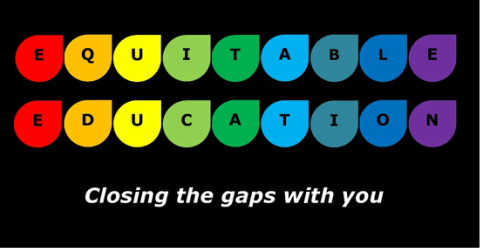| classroom_strategies_research_review.pdf |
"International trials-based evidence of effective classroom strategies
International research evidence, based on experimental trials, identifies some common classroom strategies that work across different subjects and educational phases:
- The quality of teaching makes the biggest difference to learning outcomes Pedagogy matters.
- Coaching teachers/teaching assistants in specific teaching strategies significantly raises outcomes for children living in poverty.
- Evidence-based approaches include cooperative learning (structured groupwork), frequent assessment and ‘learning to learn’ strategies.
- Adopting new curricula does not, in general, produce large improvements in learning outcomes.
- Classroom interventions that close attainment gaps often adopt proven classroom management strategies, for example a rapid pace of instruction, using all-pupil responses and developing a common language for discipline.
- Traditional use of information and communication technology (ICT) (e.g. individualised, self-instructional programmes) has minimal impact on attainment for children living in poverty. Whole-class approaches, such as the use of interactive whiteboards and embedded multimedia, show greater promise.
- Whole-school reform models, which address multiple elements of school provision, can produce substantial improvements in academic outcomes.
- The most powerful improvements in achievement are produced through the use of well-specified, well-supported and well-implemented programmes, incorporating extensive professional development. The review identifies specific evidence-based programmes that UK schools can adopt.
Findings from the best-evidence synthesis of strategies for struggling readers living in poverty – What works for struggling readers? – identify that:
- Structured phonics-based approaches, in general, work better than non phonics approaches.
- One-to-one tutoring by qualified teachers is very effective for improving literacy outcomes, but this is an expensive strategy.
- Tutoring by teaching assistants and volunteers can produce positive outcomes if they are well trained and use structured phonics materials.
- Intervening immediately is most effective for primary reading, where preventative whole-class strategies are adopted first, followed by tutoring for the small number of pupils who still need it.
Findings of the best-evidence synthesis of early years interventions – What works in early childhood programmes? – identify that:
- Early childhood programmes with explicit emergent literacy instruction and clear teaching objectives, provide the greatest improvements in school readiness, when they are implemented in a developmentally appropriate way" (Pages 2 & 3).
The above provides a very useful checklist for schools on evidence based research of "what works" in the classroom and should enable the use targeted of additional resources such as the "pupil premium" to be used more effectively to close the gaps in achievement. What is interesting is the finding that adopting new curricula does not produce large improvements in learning outcomes. When one considers the financial investment, time and effort devoted to overhauling the curriculum it seems that many other strategies could yield better outcomes for learners than this. In contrast, what is not surprising is the finding that the quality of teaching impacts the greatest on learning outcomes. This still remains one of the fundamental challenges for the English education system where in-school variation continues to exist within schools, with disadvantaged pupils making 1.5 years of learning over a school year with a highly effective teacher compared to 0.5 years learning with a poorly performing teacher. This difference of one year’s worth of learning is critical since the prevalence of in-school variance in the quality of teaching can hold back disadvantaged pupil's learning even further. This brings to the fore the need for schools to ensure the second finding of this report, that there are plenty of opportunities for teachers and learning assistants to receive coaching and support from colleagues who deliver outstanding teaching in school. Spreading this best practice in teaching through collaborative teaching opportunities and peer support rather than the heavy reliance of Ofsted type formal lesson observations, which do not necessarily result in teacher's improving the quality of their own teaching has been shown to impact on pupil's progress.
Further detailed information on each of the classroom strategies is provided in the report for those interested in delving into the evidence further and considering the implications for their own teaching.We haven't focused on the whole school strategies the report outlines as making an impact, but this section will no doubt be of interest to Heads and Senior Leaders too and is well worth a read to save time and effort, not to mention costs in implementing strategies that are going to have very little if negligible impact on outcomes for learners.

 RSS Feed
RSS Feed
